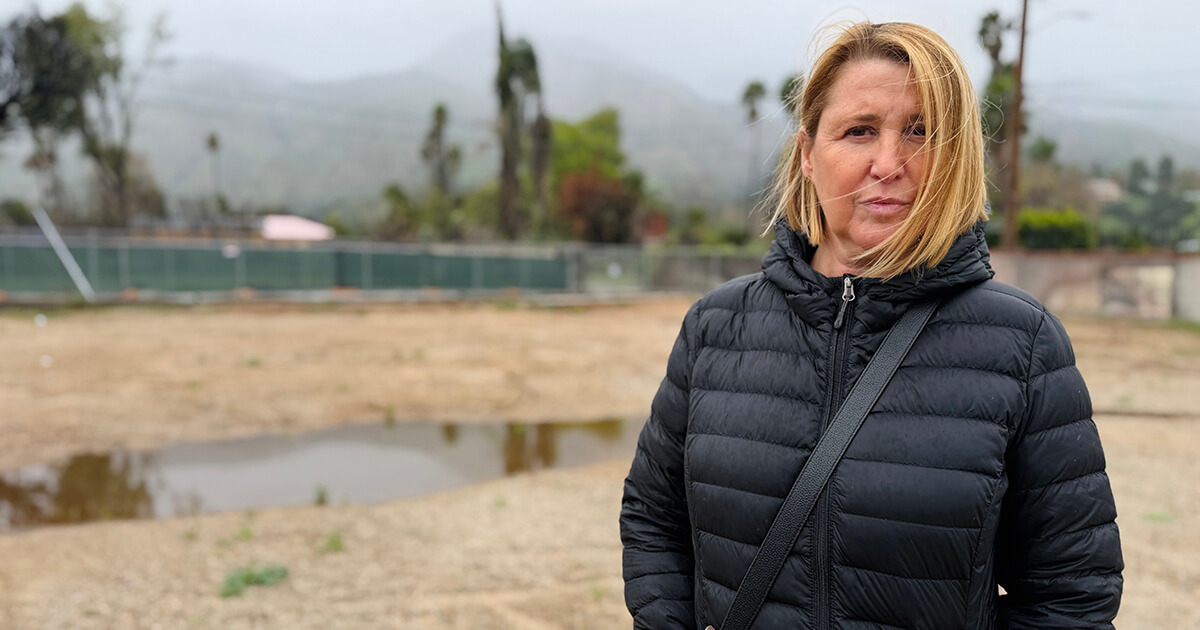Right Slams Plan, Center Remains Quiet
WASHINGTON — The U.S.-backed “road map” to Middle East peace is coming under mounting attack from conservative pundits and several right-wing Jewish groups, while most influential Jewish organizations are offering either tepid support or subtle criticisms of the plan.
As a result, some observers say, the weight of visible Jewish opinion in this country has been landing to the right of Israel’s right-wing government.
Many Jewish groups, stunned by President Bush’s sudden plunge into Middle East peacemaking and struggling to read Prime Minister Sharon’s true intentions, have toned down their earlier criticisms of the American plan. But most are still withholding active support for the plan, which is heavily favored by the White House and was pushed through the Israeli Cabinet May 23 by Sharon.
“Essentially, what you’re seeing is the leaders of these organizations waiting for the other shoe to drop,” said Marshall Breger, who served as White House liaison to the Jewish community under President Reagan and now teaches law at Catholic University of America in Washington, D.C. “They are waiting to see how the implementation process [of the road map] unfolds before they do anything.”
One notable exception is the American Israel Public Affairs Committee, the leading pro-Israel lobbying group in Washington, which released a strong statement in support of the road map in an attempt to set the tone for mainstream Jewish groups and members of Congress. Nonetheless, Aipac has stopped short of campaigning vigorously for the plan on Capitol Hill. That, some observers say, has effectively left the lobbying front open to groups that openly oppose the plan.
Later this month, for example, the Zionist Organization of America is planning a major lobbying blitz in Washington against the road map, following up on a rally last month by right-wing Jewish and Christian groups. No comparable campaign has been mounted for it.
The ZOA, departing from its longstanding tradition of not criticizing Israel’s government directly, is attacking both Sharon and Bush for backing the road map. In addition to calling the plan a “disaster” and a “nightmare,” ZOA national president Morton Klein has accused Bush of pressuring Israel into endorsing the plan. Klein chastised Sharon for negotiating with his Palestinian counterpart Mahmoud Abbas, also known as Abu Mazen, whom Klein calls a Holocaust denier.
Opposition to the road map was also strong at two events held in New York last week: a concert attended by thousands in Central Park on Sunday, under the slogan “Say no to a PLO terror state,” and a fundraising dinner by American Friends of Ateret Cohanim, an organization dedicated to buying Arab-owned property in East Jerusalem. In addition, hawkish pro-Israel commentators often identified as voices of Jewish opinion, including Charles Krauthammer, have repeatedly criticized the road map in newspaper columns and Internet bulletins.
The combination of tentativeness in the center and vociferous attacks from the right has drawn criticism from some dovish groups and pundits. In a May 30 television interview with Charlie Rose, New York Times columnist Thomas Friedman criticized Jewish organizations for not doing more to back U.S. efforts to kick-start the peace process.
“What I found sad,” Friedman said, “is that the organized leadership of the American-Jewish community has slipped into a default mode that I would argue basically gives off the message, ‘We don’t want any negotiations’ — that almost any negotiations, any pressure on Israel is bad — even if it’s accompanied… with pressure on Yasser Arafat or the Palestinians. That’s no place for the American Jewish community to be, in my view, because that’s not serving Israel.”
In reality, open opposition to the road map is being mounted only by a relatively small number of Jewish groups — in part because of what one pro-Israel activist described as “gentle messages, not marching orders” from Israeli officials. At the same time, however, some of the most influential groups have conspicuously stopped short of issuing even token statements in support of the plan. The holdouts include the Anti-Defamation League, American Jewish Committee, the Orthodox Union and the main pro-Israel communal representative body, the Conference of Presidents of Major American Jewish Organizations.
Several communal observers suggested that, before actively lobbying and speaking out on behalf of what they see as a flawed plan, many community leaders want to see more proof that Sharon himself is genuinely committed to proceeding. Although the prime minister cajoled his Cabinet into approving the plan, some Sharon watchers suggest that it was a short-term tactical move to avoid an immediate confrontation with the White House.
Two well-informed sources suggested that Jewish groups would remain on the fence until Sharon moves to dismantle illegal settlement outposts. In the meantime, said Breger, most groups are focusing their efforts solely on making sure that the Bush administration addresses the 14 reservations formally voiced by the Cabinet when it approved the road map.
The plan was the main topic of conversation at a Conference of Presidents briefing Tuesday featuring Israeli Education Minister Limor Livnat of Likud, who abstained in the Cabinet vote. Livnat criticized the road map, describing it negatively as a return to the Oslo process, and said Sharon had been pressured by the United States to endorse the plan. She warned that it might be necessary at some point for American Jewish groups to take on the Bush administration if it continued to push for Israeli concessions prior to the dismantling of the Palestinian terrorist infrastructure in the territories.
The Presidents Conference was criticized in some circles for failing to invite a Cabinet member who would defend the plan. The conference’s executive vice chairman, Malcolm Hoenlein, rejected the criticism, saying Livnat had been invited because she happened to be in town. He added that the organization was attempting to organize some sort of event involving Sharon.
Hoenlein, along with the organization’s outgoing chairman, media mogul Mortimer Zuckerman, have been criticized by some conference members for being too outspoken in their public criticisms of the plan.
“These are hard-liners, while the Jewish community, overall, is moderate and supports a two-state solution that includes dismantling settlements,” said the head of one major national Jewish organization, speaking on condition of anonymity.
During the session with Livnat, Hoenlein asked the minister what Israel planned to do — “without being confrontational” — to better publicize the 14 reservations voiced by the Cabinet. The conference’s incoming chairman, hotelier James Tisch, asked what the Israeli government was going to do to confront incitement against Israel in Palestinian textbooks.
The ADL and the AJCommittee have not offered any new criticisms of the plan since it was approved May 23 by the Israeli Cabinet. But both organizations continue to feature critiques of the road map on their Web sites.
“I suppose we should update the Web site,” Foxman told the Forward. “The rational, reasonable and responsible thing to do is to give Sharon the political leeway, regardless of how we personally feel” about the road map. Still, he said, “Our concerns about it, frankly, still exist.”
In another sign of vocal misgivings within the Jewish community, about 375 pulpit rabbis nationwide, from across the denominational spectrum, have signed a letter to Bush demanding that a complete cessation of Palestinian violence and incitement be made a precondition to any peace process. The letter, which was drafted by a committee of six rabbis, including Rabbi Avi Weiss of Amcha—The Coalition for Jewish Concerns, also insists that the Palestinians must renounce any “right of return” to Israel before the peace process moves forward.
Weiss, who opposes the road map, said that the committee worked hard to frame the letter in a way that would permit both critics and supporters of the plan to sign on. He said the committee’s next goal would be collecting one million signatures.
With Reporting by Ami Eden in New York.















